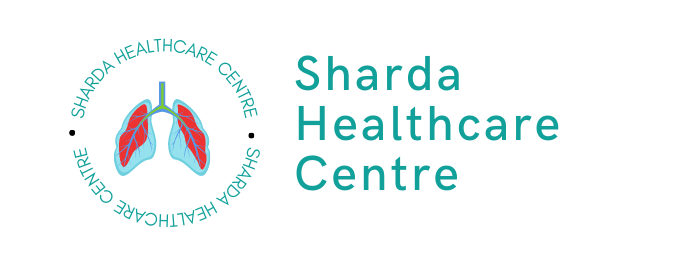
Asthma: Symptoms, Treatment, and Prevention
Millions of people all through the globe struggle with asthma, a chronic lung condition. It can be a debilitating disease that significantly impacts a person’s quality of life. In this comprehensive guide, we will delve into the world of asthma, covering everything from its symptoms and types to its treatment options and prevention strategies. You will have a better grasp of asthma and how to effectively treat it by the time you finish reading this article.
What is Asthma?
Asthma is a chronic respiratory disorder that affects the airways in the lungs. It is characterized by inflammation and narrowing of the air passages, making it difficult for individuals to breathe. Asthma is a prevalent condition, with people of all ages, from children to the elderly, experiencing its effects.
Asthma Symptoms
Asthma symptoms can vary in severity from person to person, but some common signs and symptoms include:
- Wheezing: Wheezing is a high-pitched whistling sound that occurs when breathing. It is one of the hallmark symptoms of asthma.
- Shortness of Breath: People with asthma often experience difficulty breathing, especially during physical activity or at night.
- Coughing: Persistent coughing, particularly at night or early in the morning, is a common asthma symptom.
- Chest Tightness: Individuals with asthma may feel a tightness or discomfort in their chest.
- Increased Mucus Production: Asthmatics often produce excess mucus, leading to phlegm and congestion.
Types of Asthma
There are several types of asthma, with the most common being allergic asthma and non-allergic asthma. These categories are based on the triggers that can cause asthma symptoms:
- Allergic Asthma: This type of asthma is triggered by allergens like pollen, dust mites, pet dander, or mold. When exposed to these allergens, individuals with allergic asthma experience symptoms.
- Non-Allergic Asthma: Non-allergic asthma is not triggered by allergens but can be caused by factors like respiratory infections, cold air, smoke, or strong odors.
Asthma Attacks
Asthma attacks are episodes when asthma symptoms worsen and become severe. During an asthma attack, the airways become even more inflamed and narrowed, making it challenging to breathe. Recognizing the signs of an asthma attack is crucial for prompt intervention and treatment.
Asthma Attack Symptoms
Asthma attack symptoms may include:
- Severe Wheezing: The wheezing sound becomes louder and more pronounced.
- Extreme Shortness of Breath: Breathing becomes very difficult, and the person may struggle to speak in complete sentences.
- Increased Coughing: Coughing intensifies, and it may be accompanied by thick mucus.
- Use of Accessory Muscles: During severe attacks, individuals may use their neck and chest muscles to help with breathing.
- Cyanosis: The lips and nails may turn blue due to a lack of oxygen.
Asthma attacks can be life-threatening, so seeking immediate medical attention is essential if someone experiences these symptoms.
Asthma Triggers
Understanding and avoiding asthma triggers is crucial in managing the condition. Identifying the specific triggers that worsen your asthma can help you take proactive steps to prevent attacks.
Common Asthma Triggers
Some common asthma triggers include:
- Allergens: Typical allergens that might exacerbate asthma symptoms include pollen, dust mites, mould, and pet dander.
- Respiratory Infections: Viral respiratory infections, such as the common cold, can exacerbate asthma.
- Environmental Factors: Exposure to smoke, pollution, strong odors, and cold air can trigger asthma attacks.
- Exercise: Some individuals may experience exercise-induced bronchoconstriction, which is a temporary narrowing of the airways during physical activity.
- Stress: Emotional stress can sometimes trigger or worsen asthma symptoms.
- Occupational Exposures: People exposed to irritants or allergens at work may develop occupational asthma.
Identifying and avoiding these triggers can significantly reduce the frequency and severity of asthma symptoms.
Asthma Complications
While asthma is a manageable condition for most individuals, untreated or poorly controlled asthma can lead to complications. It’s essential to be aware of these potential issues and take steps to prevent them.
Potential Asthma Complications
Some potential complications of asthma include:
- Decreased Lung Function: Long-term uncontrolled asthma can lead to a decrease in lung function.
- Frequent Asthma Attacks: Frequent asthma attacks can be physically and emotionally distressing.
- Missed Work or School: Severe asthma can result in missed days at work or school.
- Hospitalization: In severe cases, asthma attacks may require hospitalization.
- Respiratory Infections: Individuals with asthma are more susceptible to respiratory infections.
- Sleep Disturbances: Nighttime asthma symptoms can disrupt sleep patterns.
To minimize the risk of complications, it’s crucial to work closely with a healthcare provider to develop an asthma management plan.
Asthma Treatment
Fortunately, asthma can be effectively managed with the right treatment approach. The goal of asthma therapy is to control symptoms, improve lung function, and minimize the risk of asthma attacks.
Asthma Medications
Asthma medications can be broadly categorized into two types:
- Controller Medications: These medications are taken regularly to control and prevent asthma symptoms. They include inhaled corticosteroids, long-acting beta-agonists, leukotriene modifiers, and biologics.
- Reliever Medications: These medications provide quick relief during asthma attacks. Short-acting beta-agonists, such as albuterol, are commonly used as relievers.

Asthma Inhalers
Many asthma medications are delivered through inhalers, which allow the medication to reach the airways directly. For therapy to be successful, proper inhaler technique is essential. It’s essential to learn how to use your inhaler correctly and follow your healthcare provider’s instructions.
Asthma Therapy
In addition to medications, asthma therapy may include:
- Allergen Immunotherapy: Allergy shots or tablets may be recommended for individuals with allergic asthma to reduce sensitivity to allergens.
- Lifestyle Changes: Managing asthma often involves making lifestyle adjustments, such as avoiding triggers, maintaining a healthy weight, and staying physically active.
- Education: Learning about asthma, its triggers, and how to manage it is a crucial aspect of treatment.
Asthma Management Plan
Individuals with asthma should work with their healthcare provider to develop a personalized asthma management plan. This plan outlines how to manage asthma on a daily basis and what steps to take in the event of an asthma attack.
Asthma Prevention
Preventing asthma symptoms and attacks is a key goal of asthma management. While it may not be possible to eliminate asthma entirely, there are several steps individuals can take to reduce the risk of asthma-related issues.
Allergic Asthma Prevention
For individuals with allergic asthma, prevention strategies include:
- Allergen Avoidance: Identify and minimize exposure to allergens that trigger asthma symptoms. This may involve using air purifiers, allergen-proof covers for bedding, and regular cleaning.
- Allergen Immunotherapy: Consider allergy shots or tablets to desensitize the immune system to specific allergens.
Non-Allergic Asthma Prevention
For those with non-allergic asthma, prevention strategies may involve:
- Avoiding Irritants: Take steps to avoid irritants such as smoke, strong odors, and air pollution.
- Cold Air Precautions: During cold weather, covering the nose and mouth with a scarf can help warm and humidify the air before breathing it in.
- Managing Stress: Stress reduction techniques like deep breathing exercises or mindfulness may help reduce asthma symptoms triggered by stress.
Conclusion:
Asthma is a common chronic respiratory condition that can significantly impact an individual’s life if not properly managed. Understanding the symptoms, types, triggers, and treatment options for asthma is essential for maintaining good health and quality of life. By working closely with healthcare providers, following an asthma management plan, and taking steps to prevent asthma attacks, individuals with asthma can lead active and fulfilling lives despite their condition. If you or a loved one has asthma, remember that effective management is the key to controlling this chronic disease and enjoying a symptom-free life.
FAQ's
Chronic respiratory disease known as asthma damages the lungs’ airways, producing inflammation and constriction that makes breathing challenging.
Common asthma symptoms include wheezing, shortness of breath, coughing (especially at night or early morning), chest tightness, and increased mucus production.
Asthma attacks can be triggered by various factors, including allergens (e.g., pollen, dust mites), respiratory infections, cold air, smoke, and stress.
Yes, there are different types of asthma, with allergic asthma (triggered by allergens) and non-allergic asthma (triggered by other factors) being the most common.
Asthma attacks are treated with reliever medications, such as short-acting beta-agonists, which provide quick relief by relaxing the airways.
